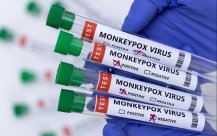(Sydney Composite Electric) The three states with the largest population in Australia will adjust the traditional fireworks performances held on New Year's Day, hoping to avoid overtaking super communication incidents while welcome the new year.
Australia yesterday's new crown disease confirmed diagnosis cases exceeded 20,000 for the first time, reaching 21,329, of which New South Wales accounted for more than 12,200.Although the new state cases have continued to surge, the state governor urges the public to take more "personal responsibilities" and learn to coexist with crown diseases.
In order to prevent the outbreak of super communication incidents, the authorities will take some preventive measures. If the people who intend to go to watch the Sydney fireworks performance must book tickets in advance to prevent people from gathering.Victoria added 5137 confirmed yesterday, and the authorities urged people to be cautious during the New Year.Victoria's capital Melbourne will ignite fireworks in four private places today to reduce the gathering of the crowd and ensure that all attendees can be tracked.
The capital of Queensland's capital Brisbane will not cancel the main fireworks performance this year, nor requires the viewers to complete the vaccination, but they must use mobile phone applications to register.
redefine the "close contact" to live in the same family as the infected person
On the other hand, in order to reduce the burden on the test center, AustraliaYesterday, it was announced that the "close contact" was redefined as a person who lived in the same family as the infected person.Those with close contact must be isolated for seven days, and polymerase chain reactions (PCR) detection must be performed only when symptoms occur.
However, this measure aroused dissatisfaction among the Australian Medical Association, and said that the move would rebound the epidemic.Although the surge in diagnosis caused pressure on the test center, the number of hospitalizations is still lower than the peak period of the Delta epidemic.According to official data, only about 120 people in Australia currently lived in more than 110,000 active cases.




